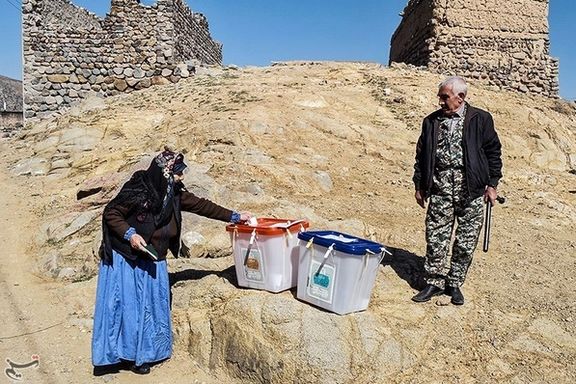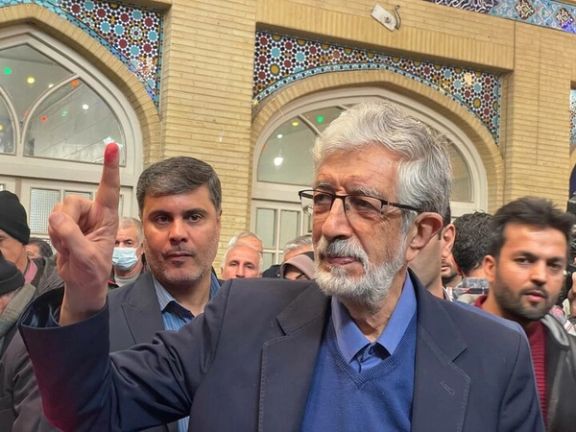Elections In Iran Shift To Tribes Over Parties, Newspapers Say

Following the low-turnout March 1 elections in Iran, newspapers are criticizing the electoral system and the Interior Ministry for their conduct and handling of the election results.

Following the low-turnout March 1 elections in Iran, newspapers are criticizing the electoral system and the Interior Ministry for their conduct and handling of the election results.
Some newspapers such as Ham Mihan and Sazandegi, along with the pro-reform Arman Melli, delved into significant issues with headlines such as "The Decline of Politics in Iranian Society," "Ethnic Groups Supplanting Political Parties," and "A Silent Protest." Meanwhile, hardline dailies like Kayhan offered congratulations to the government, celebrating "the high voter turnout" without acknowledging the sizeable majority of eligible voters who abstained.
However, Kayhan, linked to Supreme Leader Ali Khamenei’s office, failed to mention that from nearly 62 million eligible voters, some 36 million refused to take part in the elections, even according to the inflated numbers announced by the government.
Ham Mihan pointed out that with this election "political activity in Iran has become banal," as young individuals with little political experience will enter the Iranian parliament next summer. The daily quoted social scientist Kazem Kardavani as saying that "The Iranian society will not be able to solve its problem as long as politics is reduced to a vulgar matter." The daily reiterated that no man in the street can become a political leader overnight.
The paper further observed that the conservative camp, in its pursuit of political purification, has sidelined experienced politicians like Gholam-Ali Haddad Adel. It warned that this trend could extend to other prominent figures, including current Majles Speaker Mohammad Bagher Ghalibaf.

In an article for Sazandegi, Hossein Marashi of the centrist Executives of Construction Party pointed out the replacement of political parties by ethnic groups in the election, attributing it to government filtering of political parties and the expectation of a Tehran boycott, which shifted political activity to smaller towns with stronger ethnic identities.
Marashi cited Urmia's election outcome, where ethnic Kurds triumphed over ethnic Azaris, as evidence. He issued a stark warning against the ultraconservative Paydari Party, suggesting it could seize control of both the parliament and the country, urging vigilance against its totalitarian tendencies.
Meanwhile, in a stark warning to Supreme Leader Ali Khamenei who has reportedly engineered the elections, Marashi said that the leading ultraconservative Paydari Party is likely to take over not only the parliament, but probably the whole country. Marashi wrote: "After the election, the Islamic Republic should closely watch Paydari and its totalitarian tendencies. The leaders of the regime will have to note that Paydari can turn into a nuisance that can disrupt everything.
Marashi warned that "if Ghalibaf cannot control the parliament, Paydari will take over the helm and control the legislature. In that case the only solution for the regime is to give an opportunity to reformists to face down Paydari." However, the reformists' ability to do so is doubtful.
Arman Melli quoted reformist activist Saeed Shariati as saying that election turnout was terribly low in all the elections since 2020, and that this situation will not change as long as the people's trust in the election system and in the performance of the Majles is not restored. Shariati said that the people do not trust an election whose candidates are nominated by the Guardian Council rather than by people or political parties. On the other hand, the Majles has done nothing to restore people's trust in the legislative system.
The daily reiterated that by not voting, or by casting blank votes, Iranians have silently voiced their dissatisfaction with the country's current situation.